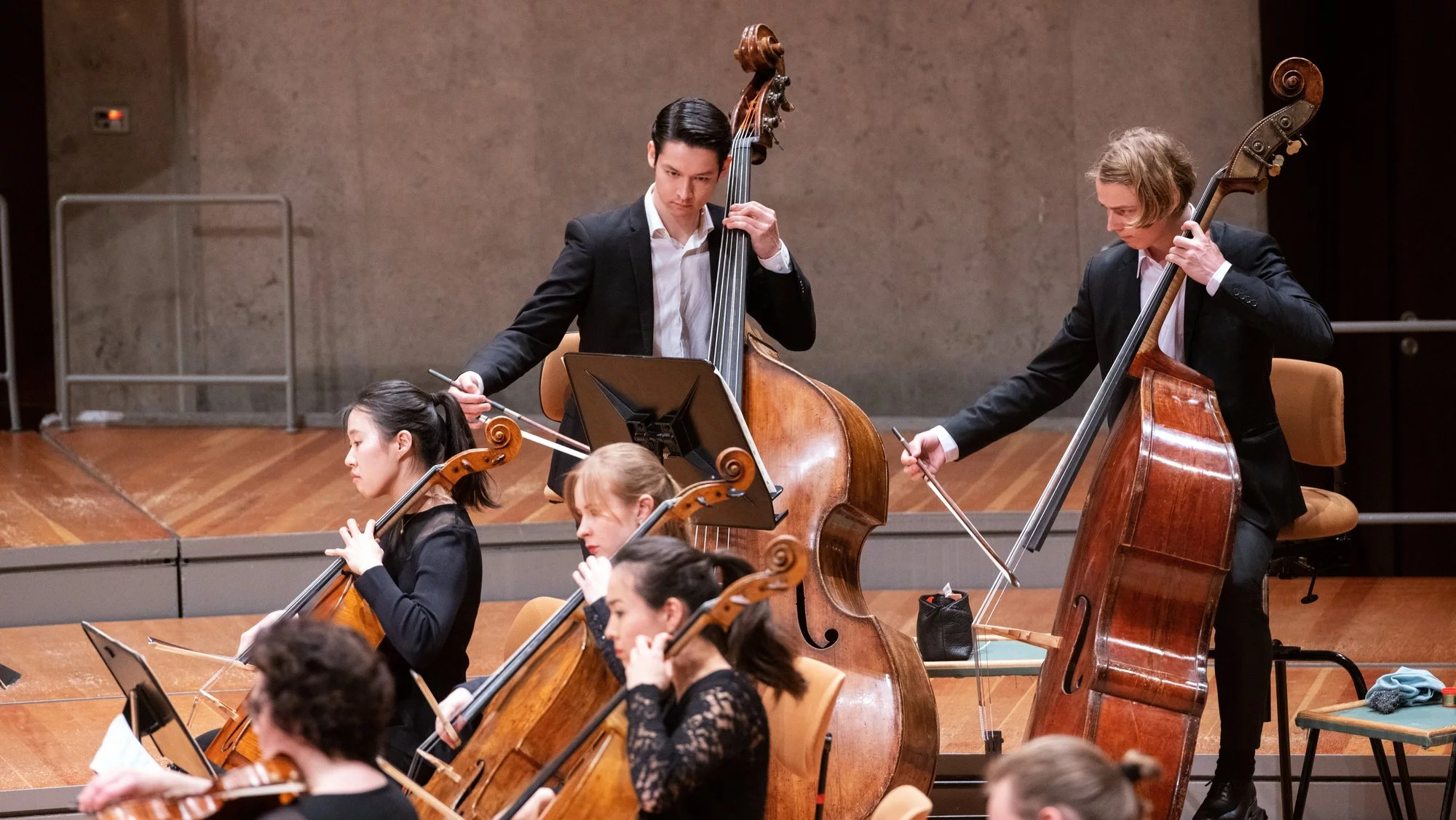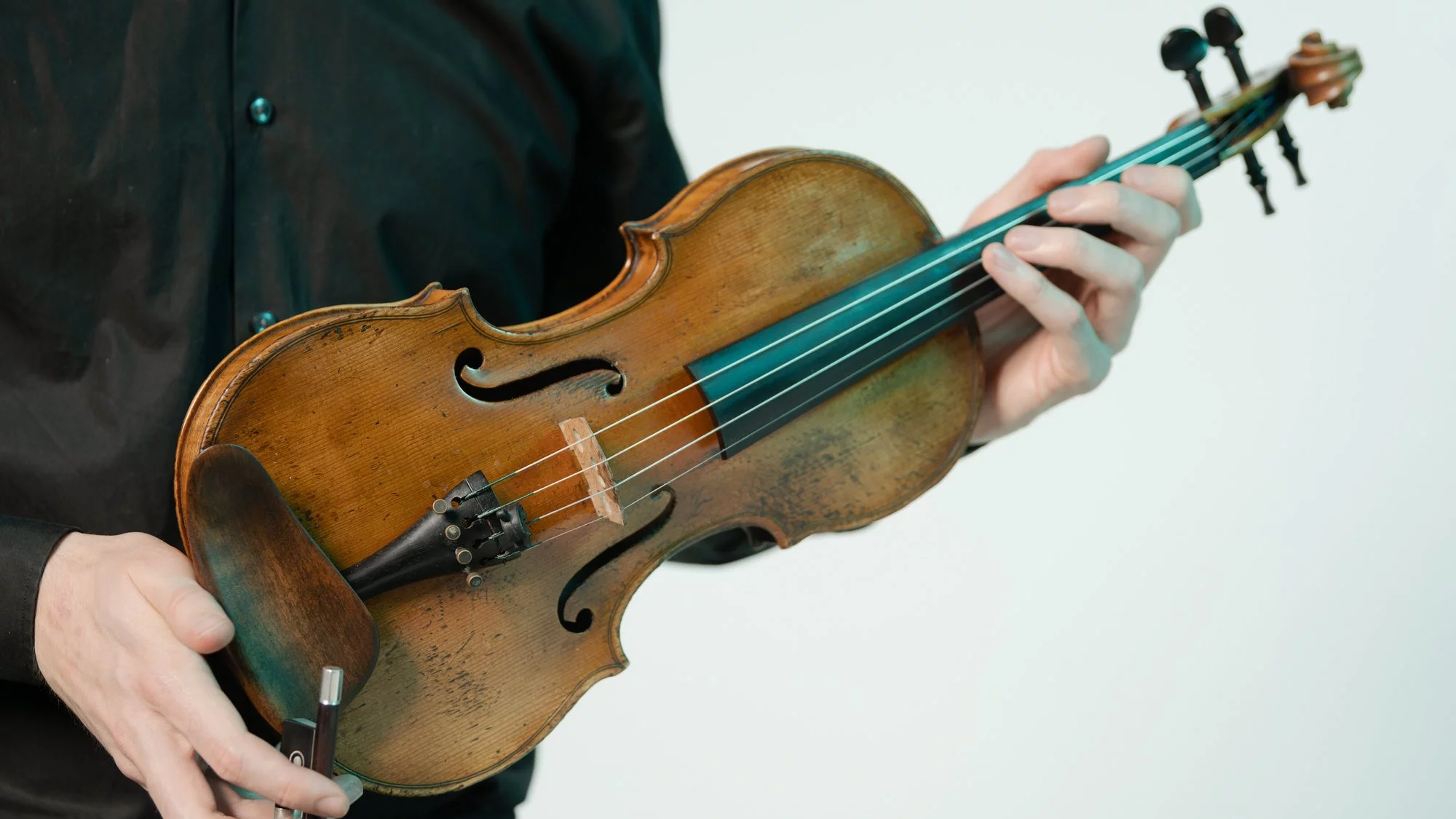The Karajan Akademie of the Berliner Philharmoniker goes back to an initiative of Herbert von Karajan, who in the early 1970s had the idea of organizing the training of young orchestral talent of the Berliner Philharmoniker in an academy. This form of institutionalized support was an innovation at the time. For the first time, outstanding young musicians undergoing a first-class university education, but mostly oriented towards the solo repertoire, were given the opportunity to perfect themselves in a community of top musicians such as the Berliner Philharmoniker.
But it is not only the academy students whose future benefits from top training in the form of a two-year scholarship, but also the Berliner Philharmoniker. Decisive factors in winning an audition for a position in the orchestra include not only instrumental ability and musicality at the highest level, but also a sound that suits the orchestra. Optimally prepared for this by the orchestra’s musicians, talented academy students can become young professionals of the Berliner Philharmoniker, continuing tradition. Around a third of today’s Berliner Philharmoniker musicians have emerged from the Academy.

What does it mean to play in an orchestra? What skills are required of the orchestral musician? Listening carefully, permanent and critical self-reflection, constant improvement – these are just three of the things that the teachers at the Karajan Academy teach their students.
The Karajan Academy of the Berliner Philharmoniker trains musicians on all orchestral instruments – in preparation for their future careers in the orchestra. The training concept is designed as both a post-graduate course and an internship.
The five pillars of our education programme
All students receive two hours tuition on their instrument per week. The tutors are predominantly the concertmasters and section leaders of the orchestra. In addition to the orchestra’s particular playing style and sound ideal, tutors teach the students the philosophy of the orchestra, promote the responsibilities of the musician as an individual, and motivate them to set the highest possible goals.
Chamber music occupies a particularly prominent place at the Academy as it serves to promote the whole instrumental culture. The students are introduced to the specific repertoire of their respective instrument. In addition, there are work phases focusing on Early and Contemporary music on a regular basis. In these chamber music projects, the students receive the necessary fine-tuning, and they learn to understand the importance of listening carefully to each other. Moreover, the standard repertory of Classical, Romantic and Contemporary music is worked on together with all the other instrumentalists of the Academy. Each season, between five and seven public concerts are held in the Berlin Philharmonie.
The students regularly participate in orchestral rehearsals and concerts, providing them with an insight into the everyday life of a professional musician. They not only get to know the standard repertoire, but also how to listen to their colleagues and to integrate themselves into the orchestra collective.
Last but not least, the young musicians are prepared for future auditions, including rehearsing the necessary repertoire, especially the orchestral parts, and mentally preparing themselves for the extreme conditions that the situation involves.
In weekly seminars, the scholarship-holders are taught course content from the fields of psychology, music philosophy, music law, marketing and dance. These are intended to prepare the young musicians for the professional challenges ahead, and to give them the skills for long and fulfilling lives as professional musicians.

Free scholarships
Free scholarships are regularly advertised on our website.
Prerequisites
- Admission to the Karajan Academy usually takes place on September 1st, if necessary also during the concert season.
- The duration of training is two years, the first six months being a probationary period. The training ends early if a permanent position in an orchestra is taken up.
- Scholarship holders receive a scholarship of 1,050 euros per month.
- Each scholarship holder is responsible for their own health insurance.